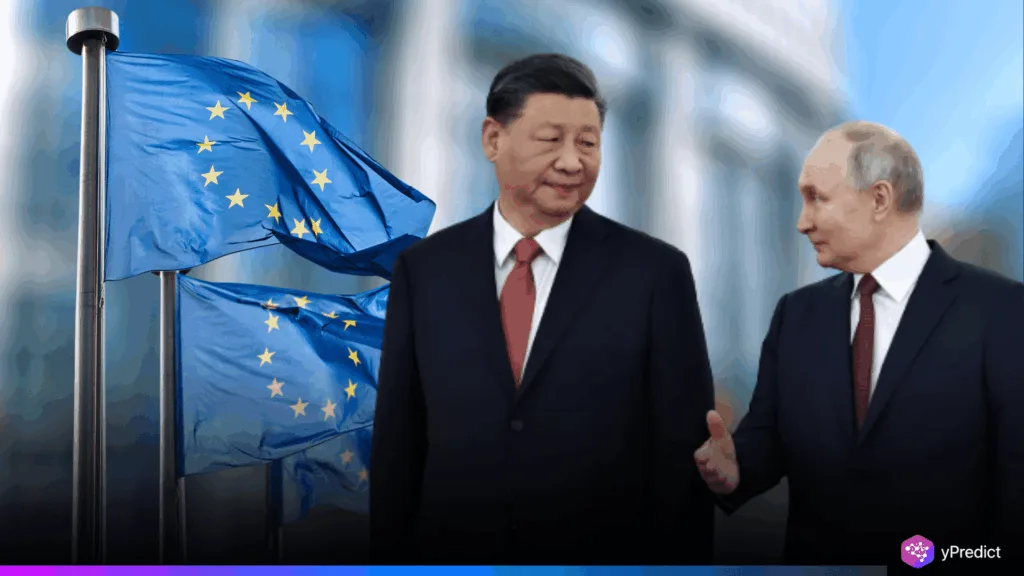
The European Union is preparing to impose new China-Russia sanctions. This comes after reports surfaced that the Russian military was using drone engines manufactured in China in Ukraine. Diplomatic sources claim that the engines were transported illegally under current EU sanctions under the pretense of refrigeration units.
It was also a reaction to an inquiry in July that prompted Brussels to contact Beijing and carry out further research. Diplomats are emphasizing that Europe must use its trade power to counter covert support for Moscow’s war efforts, despite China’s repeated denials.
How Did Drone Engines Evade EU Oversight?
The EU’s action comes after it was discovered that Russians had obtained Chinese drone engines via shady trade routes. Furthermore, these engines were purportedly mislabeled and shipped through front companies, which raises grave concerns regarding the EU sanctions’ enforcement flaws. Therefore, even though European intelligence knew about the problem earlier, calls for punitive action increased after it was made public.
Fifteen EU nations brought this issue directly to China, but Beijing kept quiet or refused to act. The need for urgent action was highlighted by an aging diplomat, who said the conflict in Ukraine would appear “very different” without Chinese backing. Moreover, the EU is re-examining its relationship with China and its economic strength based on this accumulating evidence.
Will China-Russia Sanctions Disrupt Global Trade Flows?
EU officials say new China-Russia sanctions may target Indian and Chinese firms that have possibly helped Russia’s defense production. Furthermore, it is expected that these actions will be taken after August. This would be one of the most confrontational between the EU and Beijing since the start of the invasion. Thus, the move could make investment and trade flows even harder.
Sanctions could have an impact on global markets, especially the foreign exchange market. The euro will deteriorate, and risk-sensitive currencies will fluctuate if Chinese retaliation affects European exports. Furthermore, the forex market may become volatile as investors consider geopolitical risks, especially when dealing with the yuan and ruble.
China-Russia Sanctions Could Redefine Geopolitical Trade Alignments
The EU must balance deterrence and diplomacy as it considers its next course of action. China maintains it has not provided arms to either side and continues to deny that it has a military alliance with Russia. However, the United States and other Western allies contend otherwise.
Europe’s increasing annoyance and desire to exert more control over trade flows related to the military are highlighted by the proposed EU sanctions. Moreover, if China does not engage constructively, the EU could exert more pressure on it. All this could necessitate that global markets prepare for greater uncertainty. Consequently, this could change how both blocs trade, invest, and affect the world.







